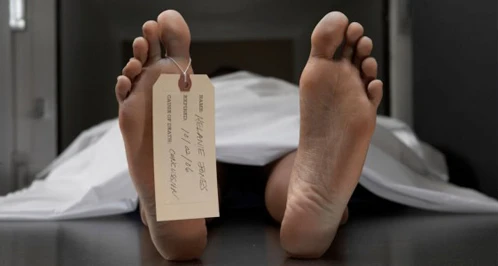
How often do you or your loved ones visit a hospital? Do you trust your doctor to know what they are doing? Going to a hospital is not as safe as you or I might like to think. Preventable Medical errors in hospitals are the third leading cause of death in the United States. Recent studies have estimated that as many as 440,000 people die from preventable medical errors in hospitals every year in this country. Along with these 440,000 deaths per year, an additional tens of thousands die from preventable errors outside of hospitals from misdiagnoses and injuries from medications. Something must be done to prevent these deaths, we must hold hospitals and their doctors more accountable for their errors, and we must find a way to improve the overall safety of hospitalized patients.
On July 17, 2014, The U.S. Senate Committee on Health, Education, Labor & Pensions Subcommittee on Primary Health and Aging held a hearing on the subject, entitled, “More Than 1,000 Preventable Deaths a Day Is Too Many: The Need to Improve Patient Safety.” The Subcommittee Chairman noted that one in twenty-five patients acquire an infection while in a hospital, which led to 700,000 people getting sick and 75,000 people dying in 2011. Including indirect cost, medical errors may cost in excess of $1 trillion, yes trillion, per year in the United States alone. The Subcommittee Chairman stated, “Medical Harm in this country is a major cause of suffering, disability, and death as well as a huge financial cost to our nation. This is a problem that has not received anywhere near the attention it deserves.”
Six individuals testified in front of the Subcommittee on July 17, 2014.
John James, PhD, Founder, Patient Safety America, Houston, Texas. His studies on the prevalance of preventable adverse events was published in 2013 in the Journal of Public Safety. James testified in part, “Patient safety is not going to improve substantially until the playing field between the ill patient and the healthcare industry is leveled by an enforced bill of rights that would include the rights to legally. . . know the safety record of their physician, outpatient clinic, nursing home, and hospital; to know the costs for tests and elective procedures before-hand; . . . and to be cared for by teams of professionals that build individual and team excellence through 360-degree performance reviews, which are anonyms reviews by patients, subordinates, colleagues, and leaders.”
Ashisha Jha, MD, MPH, Professor of Health Policy and Management, Harvard School pf Public Health, Boston, MA. Jha testified in part, “Medical errors are largely the result of bad systems of care delivery, not individual providers . . . The strategy for improvement has to focus on three main areas: metrics, accountability, and incentives.”
Tejal Gandhi, MD, MPH, President, National Patient Safety Foundation; Associate Professor of Medicine, Harvard Medical School, Boston, MA. Gandhi testified in part, “Studies have shown that medication errors are common in primary care, and that adverse drug events, or injuries due to drugs, occur in up to 25% of patients within 30 days of being prescribed a drug . . . Missed and delayed diagnosis is . . . the most common type of outpatient malpractice claim.”
Peter Pronovost, MD, PhD, Senior Vice President for Patient Safety and Quality and Director of the Armstrong Institute for Patient Safety and Quality, Johns Hopkins Medicine, Baltimore, MD. Pronovost testified in part, “Medicine today squanders a third of every dollar spent on therapies that do not get patients well, that result from treating preventable complications, and that result from administrative inefficiencies and fraud. This is about $9,000 per U.S. household. . . We need to declare right now that preventable harm is unacceptable and work to prevent all types of harm, including harm from care that patient’s feel is disrespectful care, not just one harm. We need to start viewing the delivery of health care as a science.”
Joanne Disch, PhD, RN, Professor of Honorem, University of Minnesota School of Nursing, Minneapolis, MN. Disch testified in part, ” My points are three: (1) the impact of preventable events – death and serious preventable complications – is even more extensive than the gripping title of this hearing suggests . . . ; (2) is it possibly the most bipartisan issue that exists today – since many, if not most, of us have likely had the experience of being a patient or family member who experienced one of these events, or will in the future; and (3) it is one of the few issues that money alone cannot solve.”
Lisa McGiffert, Director, Safe Patient Project, Consumers Union, Austin TX. McGiffert testified in part, “When patients are harmed, they often are subjected to additional harm when caregivers fail to disclose or explain what happened. Medical records are withheld or altered or never documented accurately. Many families have to file lawsuits just to get information about how their loved ones died. . . We must create a more just and fair system that encourages discussions without requiring patients’ rights in exchange, that compensates patients for their losses and that treats them with dignity and respect.”
If you or a loved one were injured as a result of a medical mistake, medical error, adverse medical event, or other medical negligence, whether it occurred in a hospital or elsewhere, you should seek legal advice as soon as you can. For more information regarding Medical Malpractice and how we can help you here at Yonke Law, LLC, click here.
Source: Jeff Messing at https://www.medicalmalpracticelawyers.com/blog/u-s-senate-subcommittee-holds-hjearing-1000-preventable-deaths-day-many-need-improve-patient-safety/

